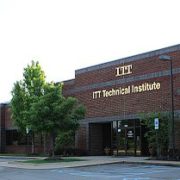
What happened to ITT Tech?
ITT Tech used to be a powerhouse among for-profit schools, with about 130 campuses in 38 states. It offered programs in everything from business to nursing to computer forensics to paralegal studies. And on September 6, 2016, it shut down for good. That left about 35,000 students without a degree and 8,000 employees out of a job.
So, what happened? ITT Tech had been in business for 50 years, but has been on the government’s radar for several years. Two federal agencies and two states had sued the school over its marketing practices and job placement rates, and a number of other states had sent subpoenas or document requests.
One major concern was how ITT Tech reported its job placement rates – students, accrediting agencies, and state governments have suggested that the rates are seriously inflated. The school advertises its job placement rates heavily, which could easily mislead students into believing that they would be able to find employment after graduation.
Another concern was ITT’s lending practices. While the vast majority of students received federal aid (more than 80% of tuition came from the federal government), it wasn’t always enough to cover the cost of tuition. So, the school offered its own private loans. They often had interest rates over 16% and origination fees in excess of 10%. At the same time, the interest rates on federal loans was 6.8%. The Consumer Financial Protection Bureau (CFPB) has filed a lawsuit claiming that the loans were misleading. According to that lawsuit, ITT has project that 64% of those loans will default.
Yet another concern was the lack of accreditation for certain programs. For example, its nursing programs weren’t actually accredited. In some states, students from non-accredited programs may still be able to get their licenses. However, most employers will not hire people unless they’ve completed an accredited program. In other words, many students ended up with degrees that could never get them a job, despite what they had been told.
Essentially, the issue boiled down to the sense that ITT Tech was misleading its students and making a lot of money doing it. Students, state governments, and government agencies suggest that the school used misleading job placement statistics to draw students in, trapped them with high interest loans, and then failed to get them jobs after graduation. So, the federal government pulled funding from the school, which led it to close its doors.
What happens to students?
ITT Tech wasn’t cheap – tuition could easily exceed $20,000. So lots of students were left with outstanding loans. Usually, it’s nearly impossible to get out of student loans. You can’t discharge them in bankruptcy except in extreme circumstances; payment plans are available for federal loans but you’ll have to stick with them for 30 years.
The good news is that there is a specific exception for students left with loans when their schools close. It’s called a closed school loan discharge. If you qualify, your loans will be entirely forgiven and any payments you’ve made will be reimbursed. In order to qualify, the school must have closed while you were still enrolled or shortly after you withdrew. Note that if you do take advantage of this program, you’ll lose the credits you earned at ITT Tech. You can start the process of applying for a discharge through the Department of Education’s website, where they have resources specifically for ITT Tech students.
Rather than applying for a discharge, you also have the option to transfer your credits to another school. You’ll need to contact that school and determine whether your credits will transfer – remember that ITT was not accredited in every program and you may not be able to use those credits elsewhere.
The Department of Education is providing free help for students affected by the closure, so there’s no need to pay companies for loan modifications or other services.
Private Loans
If you took out private loans to pay for your education at ITT Tech, you’ll need to work directly with your lender to find out what your options are. The closed school loan forgiveness program only applies to federal loans, but private loans may have similar provisions.
We Can Help
If you’re struggling to get your loans discharged or if you don’t qualify for a discharge, we may be able to help. We may also be able to help if you have private student loans that don’t qualify for a discharge. Contact us today for a free consultation and case evaluation to learn more about your options for dealing with your student loans.
Image Credit and License





 The Obama administration has embarked on a
The Obama administration has embarked on a